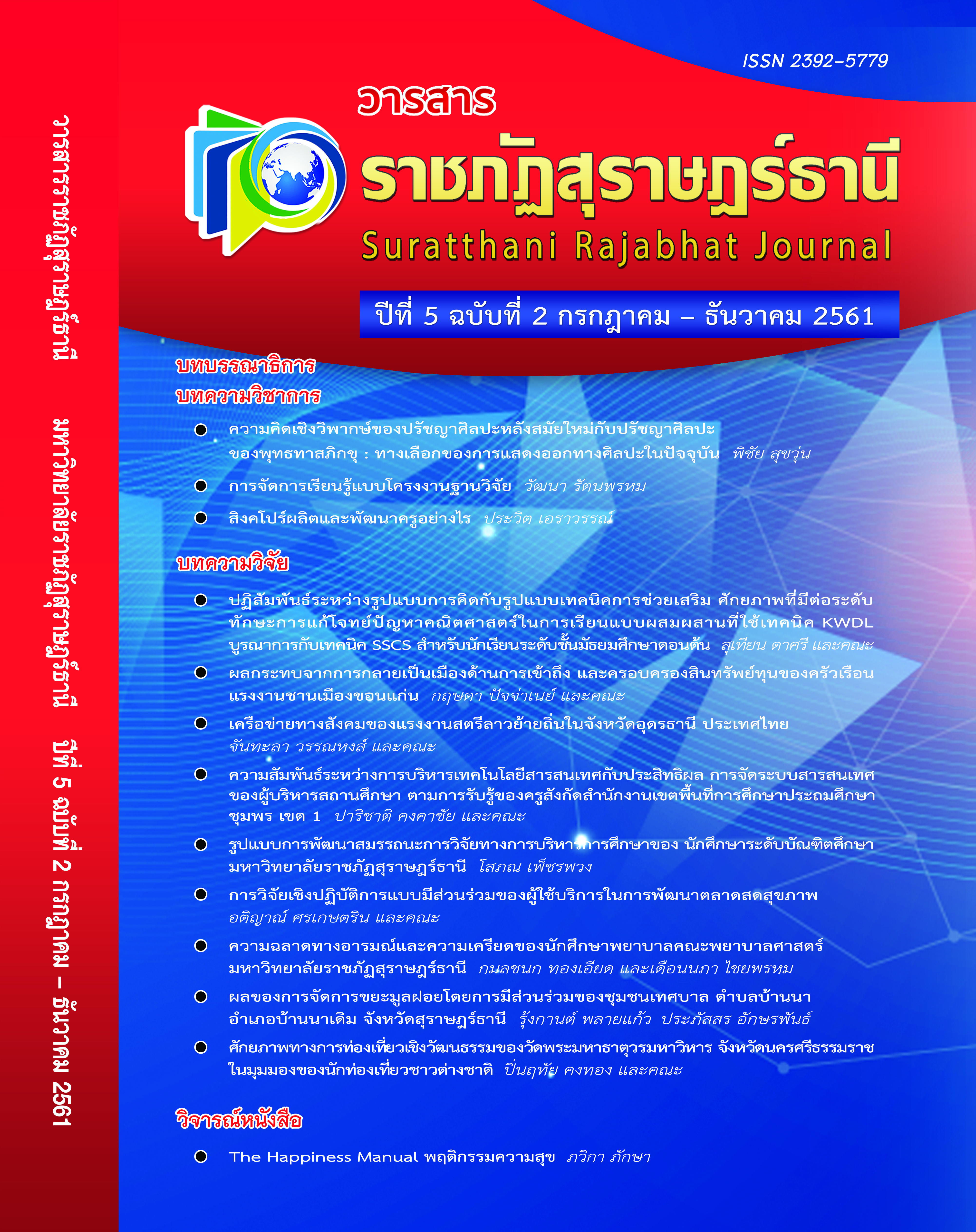How does Singapore produce and develop teachers?
Main Article Content
Abstract
The country with the highest PISA rankings is Singapore which has results that are very different from Thailand. However, when the income and expenses of education in Singapore and Thailand are considered, the results are very similar. Singapore has about ten times higher GDP than Thailand. When comparing Purchasing Power Parity (PPP), Singapore's GDP per capita is more than five times higher than Thailand's. As can be seen, Singapore is a country dedicated to both financial investment and thinking of education. Research by Sir Michael Barber points out countries with high educational attainment will have similar policies to Singapore to promote and develop teachers' learning and development. The emphasis is on the production of quality teachers. There is learning and collaboration between teachers and school administrators. To make the whole system better and not only promote innovation in schools it will help spread that innovation to the wider schools. Therefore, Singapore is another successful country for the production and development of teachers which should be studied to apply the approach to Thailand.
Article Details
References
The Matter Team. ทำไมในต่างประเทศใครๆ ก็อยากเป็นครู? ประเทศที่ระบบการศึกษาดีเขาดูแลครูอย่างไร [ออนไลน์]. เข้าถึงได้จาก https://thematter.co/pulse/ teacher-welfare-in-another-country/26591 [2560, กรกฎาคม 22].
Barber, M. & Mourshed, M., (2007). How The World’s Best-performing School systems Come Out On Top. London: McKinsey & Company, Social Sector.
Chong, S. and Tan, Y. K. (2006). Supporting the Beginning Teacher in Singapore Schools - The Structured Mentoring Programme (SMP). Hong Kong: APERA Conference 2006, 28 - 30 November 2006
Goodwin, A. L., Low, EE-L & Darling-Hammond, L. (2017). Empowered Educators in Singapore: how high-performing systems shape teaching quality. San Francisco, CA :Jossey-Bass.
Griffin, P., Cuc, N. T. K., and Gillis, S. (2004). Developing and Validating Primary School Teacher Standard in Vietnam [Online]. Available :https://www.aare.edu.au/publications-database.php/4222/developing -and-validating-primary-school-teacher-standards-in-vietnam. [2560, July 2].
Krippendorff, K. (1980). Validity in content analysis. In E. Mochmann (Ed.), Computerstrategien für die kommunikationsanalyse (pp. 69-112).
Ministry of Education (MOE). (n.d.). [Online]. Available : https://sites.google.com/site /wwwbcplcom/ my-gtc-accomplishments[2560, July 2].
_______.(n.d.). [Online]. Available : https://www.moe.gov.sg/education /syllabuses/ character-citizenship-education/files/2014-character-citizenship-education-secondary.pdf. [2560, July 2].
_______. (n.d.). Career Information [Online]. Available : https://www.moe. gov.sg/careers /teach/career-information. [2560, July 2].
Ministry of Education (MOE). (2007). Putting People at The Centre of The Education Enterprise MOE unveils “GROW 2.0” Package to further strengthen Teacher Development and Recognition and Philosophy for Educational Leadership [Online]. Available : https://www.moe. gov.sg/media/press/2007/pr20071228.htm [2560, July 2].
National Institute of Education. (2014). For Enquiries on Admission to Initial Teacher Preparation (ITP) programmes. NIE Nanyang Technological University.
European Commission. (2010). Developing Coherent and System-wide Induction Programmes for Beginning Teachers: A Handbook for Policy Maker. Brussel: European Commission Staff Working Document SEC Final.
European Commission. (2013). Supporting Teacher Educators for Better Learning Outcome. Brussel: European Commission Staff Working Document SEC Final.
The ASEAN Secretariat. (2014). ASEAN State of Education Report 2013. Jakarta: ASEAN Secretariat.


